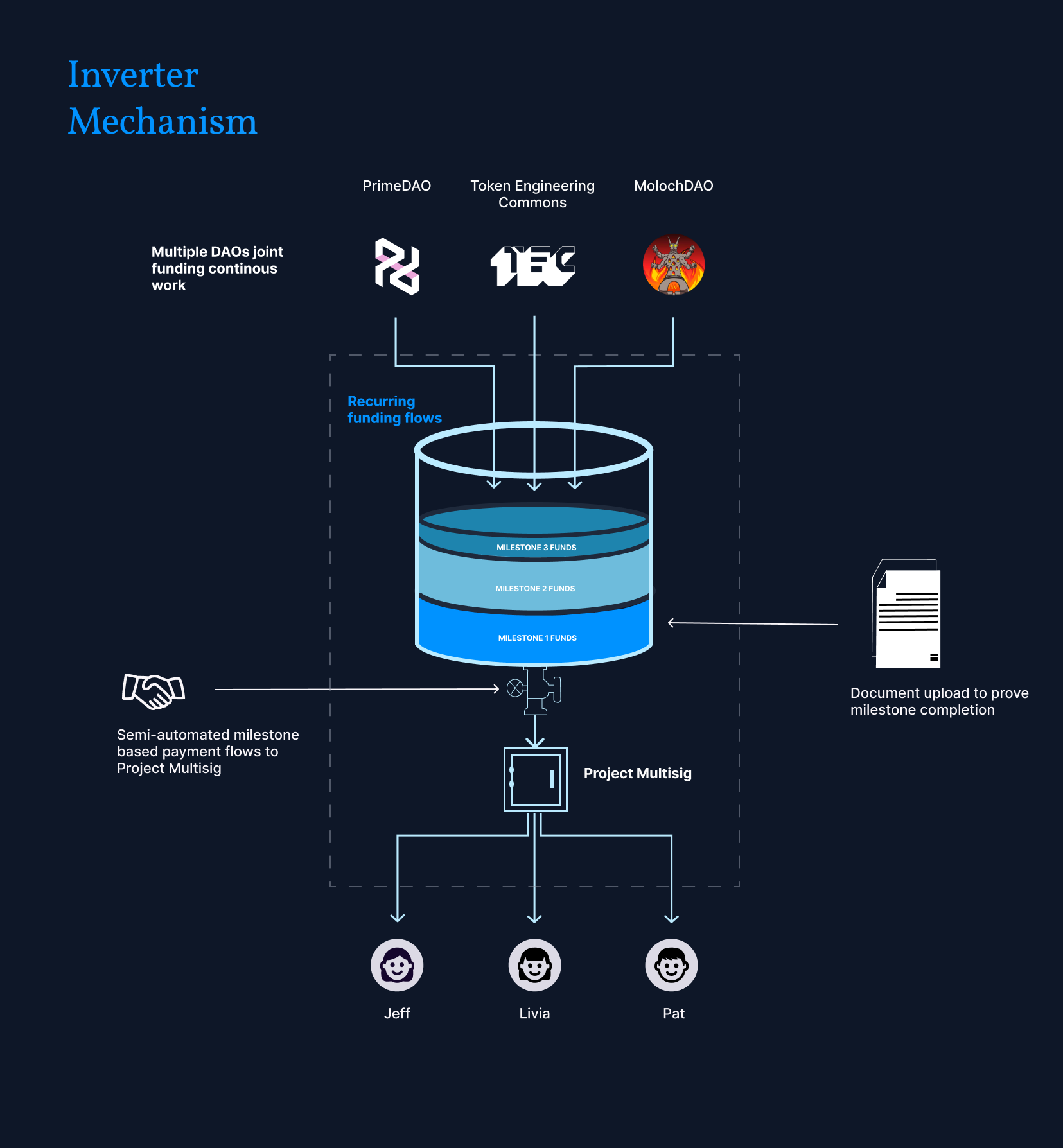Introduction to Inverter dApp
What is Inverter? And why do we need it?
Inverter is a platform that streamlines collaborative funding and co-working on proposals in the web3 space.
The Problem Definition
The web3 space lacks sophisticated infrastructure that increases accountibility and transparency; and decreases administrative effort to support collaborative funding and co-working initiatives.
There are many entities in the Ethereum ecosystem looking for opportunities to collaboarate, in an abundance of different capacities; DAOs, protocols, research groups and skilled professionals alike are all hungry for opportunities to co-create magic in the decentralized universe. What we lack is a platform to bring all of these elements together, a space for coordination and co-funding of the many ideas and intiatives in the space - from public goods to research groups to the latest web3 innovations.
Working teams are overburdened with an abundance of administrative hurdles.
Teams often must seek consensus from all the funders at every work cycle to continue the work, jump through the hoops of a governance process of approval, and then manage payments from different funders with different tokens.
In the status-quo of collaborative funding in organizations, contributors often have to contend with a plethora of differences in DAO payment schemes - networks, tokens, paperwork, and pay periods. Thus, contributors spend more time on administrative work and less time on building.
No accountability mechanisms for long-term funding
Because there is no direct way to implement check mechanisms to funded groups without relying on tiresome governance processes, the funders cannot guarantee long-term funding to working teams, and working teams bear the burden of re-seeking funds at every completion of a milestone, negotiated individually with each funder.
Inverter Flips Proposals Inside-Out
While proposals can work for small tasks within individual organizations, larger projects and collaborations benefit immensely from multiple organizations being able to fund shared projects that lie outside the scope of any individual org. They could do this using a persistent, cross-DAO funding & resource distribution tool - enter, the Inverter.
Inverter Network aims to provide the lacking infrastructure for co-funding of long-term collaborative initiatives such as joint ventures, open source work, or research proposals. It does this by reducing the administrative burden and increasing accountability and transparency for both funders and contributor teams.
The Inverter dApp improves proposal funding by:
Offering a system of accountability, feedback loops, and collaborative funding primitives for the Grant Programs that are registered to the Inverter dApp to collaboratively fund projects based on the completion of their milestones and deliverables.
Enabling individual teams such as early-stage projects, research initiatives, and DAO workstreams to easily apply for continuous funding from multiple organizations that are registered to the Inverter dApp.
Enabling organizations to continuously fund internal working groups and external projects based on their progress on a set of stated milestones and deliverables, while earning yield from idle treasury tokens.
The Tool
Inverter introduces the ability to streamline the administrative overhead of both funding and payment allocation for distributed teams working on large research and projects. It does this by providing a simple interface for funders such as Grant Programs to contribute toward project milestones and for collaborators to receive a stream of funds for the work they do over predetermined periods.
In Inverter, there are two types of agents that are actively engaging with the protocol;
Proposal Owner: The user who initiates proposals and actively oversees them to maintain the funder's consent.
Funder: The user who provides resources for Proposals.
In the next section, we'll go over the core benefits of the Inverter
Last updated

